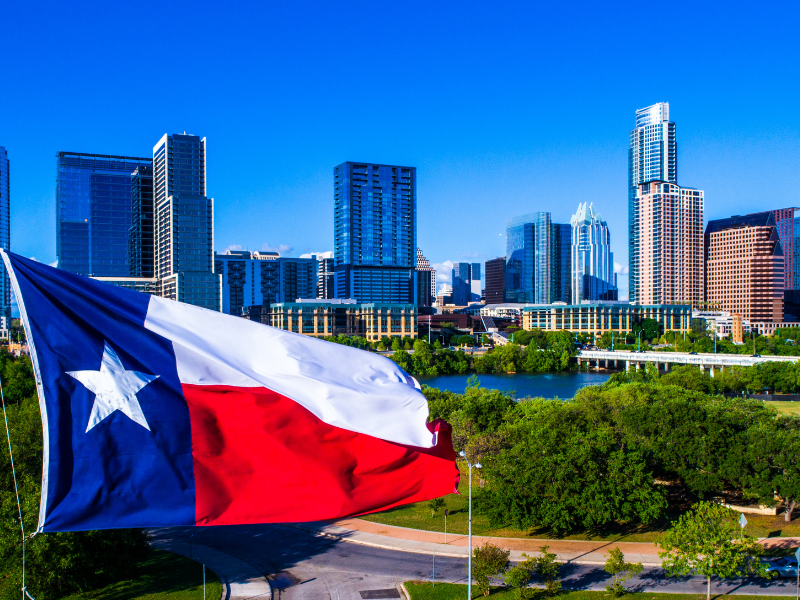
Promise Scholarships Cross Major Hurdle

Promise Scholarships Cross Major Hurdle
Key Points
- On March 14, 2024, the Georgia House voted 91-82 to pass Promise Scholarships (Senate Bill 233: The Georgia Promise Scholarship Act). The bill was confirmed in the Senate and signed into law on April 23, 2024.
- SB 233 will create a much-needed education option for students zoned for a school ranked in the bottom 25% of public schools.
- The Georgia House added parameters to the bill that reduce accessibility and set the bill to expire after 10 years. These issues will need to be addressed moving forward so that every child can have better opportunities to access quality education in Georgia.
On March 14, 2024, the Georgia House voted 91-82 to pass Promise Scholarships (Senate Bill 233: The Georgia Promise Scholarship Act). This bill is an important first step in extending an education lifeline to low- and middle-income kids in under-performing schools. While there is still much more to do as we press toward universal school access, we are thankful to the many House lawmakers who put the needs of kids above politics to advance this measure.
What’s in the Promise Scholarship Bill?
With these Promise Scholarships, students in the lowest performing 25% of public schools will be eligible to have $6,500 a year set aside in an account. These are the funds the state would have spent for their public school education. Under this bill, parents can direct the funds to cover approved educational expenses, including private school tuition, books, uniforms, and even transportation.
SB 233 also gives first priority to students from families below 400% of the federal poverty level—around $120,000 a year for a family of four. Students above that threshold will be allowed to participate if funds are left over after lower-income students are served.
To give public schools time to plan and adjust, public school districts will still receive state funding for a period of two years to cover any students leaving to participate in the program.
“Our job is not decide for every family but to support them in making the best choice for their child.” — Gov. Brian Kemp, 2024 State of the State Address
“Our job is not decide for every family but to support them in making the best choice for their child.”
— Gov. Brian Kemp, 2024 State of the State Address
Limits to Promise Scholarships
While we are thankful that the bill moved forward in the 2024 legislative session, the version of SB 233 passed by the House is watered down in significant ways:
It restricts eligibility and access: The bill caps the amount of revenue available to fund Promise Scholarships to not exceed 1% of public school funding. Even if parent demand maxes out the program, this amount only covers an estimated 21,000-22,000 kids. That’s 0.012% of Georgia’s public school student population, and only a fraction of the 500,000+ kids that are stuck in the bottom 25% of public schools.
It applies expiration dates: Unless a future legislative body evaluates the program and chooses to extend it, the Georgia Promise Scholarship program will expire in 10 years. In that decade, lawmakers will still have to vote annually to fund the program. These measures add a layer of uncertainty that makes it difficult to secure a future of success and opportunity for our kids.

Curious how your representative voted on SB 233?
Georgia’s General Assembly puts the voting records online. Go to the legislature’s website to see the breakdown of support among state representatives.
Student success is at the heart of Promise Scholarships
The passage of SB 233 can’t come soon enough. Georgia is now surrounded by states that are aggressively and urgently addressing the needs of the future generations by adopting education savings accounts, or ESAs, that are open to all students. Alabama, Florida, and North Carolina have recently enacted universal programs, while South Carolina is in the process of creating a universal program in the coming years.
ESAs, particularly universal ones, are good policy because kids need quicker solutions for accessing education options that will work best for them. We can’t wait on reforms that will take years or even decades to take hold. As we’ve seen before, increased funding is no guarantee that poor performing public schools will improve, much less improve quickly.
Every semester, our K-12 students have academic milestones they are supposed to hit. And we know that when they don’t achieve these goals, they are more likely to fall further and further behind their peers, putting themselves and their futures at risk.
SB 233 provides immediate help by making Promise Scholarships available beginning with the school year in 2025.
Education is a building block of a flourishing life. Without access to quality education in Georgia, our kids and our communities will continue down a path where success and opportunity are not open to everyone in the state. An increasing number of families are looking for alternatives, and we must work to provide opportunities that meets the needs of all students, not just a few.
Related Articles
Georgia Needs to Widen Schooling Choices in 2024
(Buzz Brockway in the Atlanta Journal-Constitution)
Georgia Passes Promise Scholarships and Expands Education Opportunity
Governor’s Signature on School Choice Bill Is Good First Step
(Randy Hicks in the Atlanta Journal-Constitution)
Georgia Promise Scholarships (SB 233): Questions and Answers
Gov. Brian Kemp Champions Education Opportunity, Calls for Unity on Promise Scholarship











